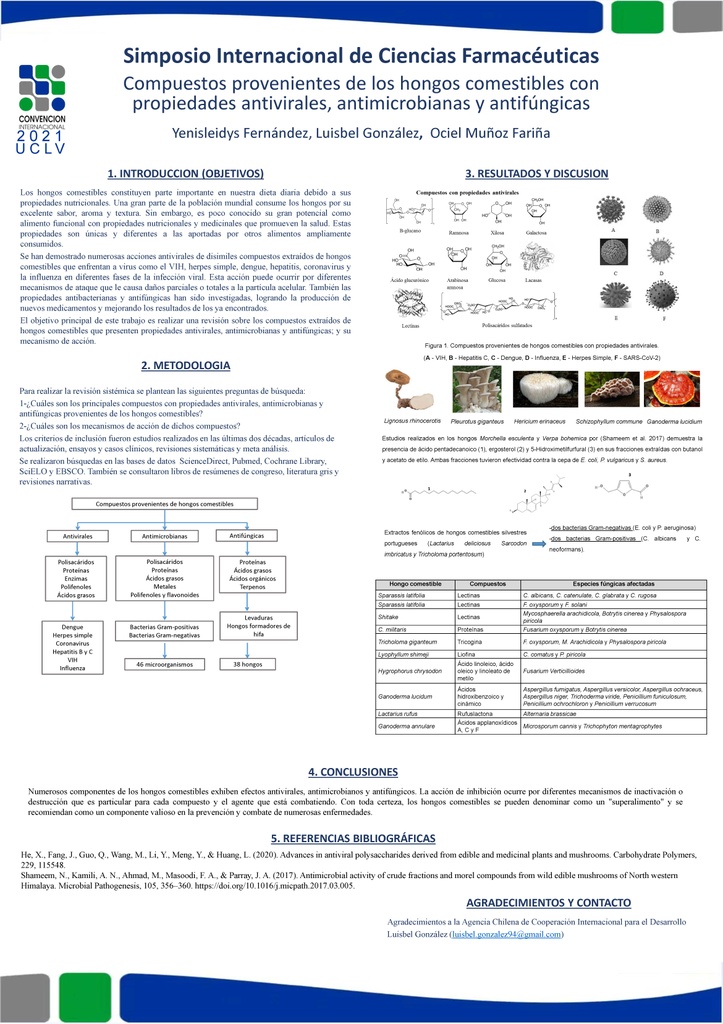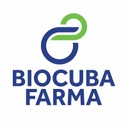Executive Secretary

Simposio Internacional de Ciencias Farmaceúticas
SICF

Abstract
Mushrooms have been used as a food supplement since time immemorial not only for their aroma, flavor and nutritional values, but also for their antiviral, antimicrobial and antifungal properties. They are known for their high culinary values due to their high-quality proteins, polysaccharides, enzymes, fatty acids, fibers, and many nutraceutical properties. The main compounds that have antiviral properties are polysaccharides and proteins, which have been studied in the fight against dengue viruses type 2, herpes simplex type 1 and 2, HIV-1, hepatitis C, influenza and their possible effect on the SARS-CoV-2 coronavirus; The inhibitory effect of enzymes, polyphenols and fatty acids has also been demonstrated. The antimicrobial properties are analyzed in a total of 46 microorganisms, the Gram-positive bacteria being the most sensitive to the extracts. The antifungal properties are analyzed in 38 fungi reported in the literature, highlighting the hypha and yeast-forming fungi. The mechanisms by which the inhibitory effect occurs were studied and allow edible mushrooms to be called a "superfood", which can be recommended in the prevention and combat of numerous diseases.
Resumen
Los hongos se han utilizado como complemento alimenticio desde tiempos inmemoriales no solo por su aroma, sabor y valores nutritivos, sino también por sus propiedades antivirales, antimicrobianas y antifúngicas. Son conocidos por sus altos valores culinarios debido a sus proteínas de alta calidad, polisacáridos, enzimas, ácidos grasos, fibras y muchas propiedades nutracéuticas. Los principales compuestos que presentan propiedades antivirales son polisacáridos y proteínas, los cuales han sido estudiados en el enfrentamiento a los virus del dengue tipo 2, herpes simple tipo 1 y 2, VIH-1, hepatitis C, influenza y se analiza su posible efecto en el coronavirus SARS-CoV-2; también ha sido demostrado el efecto inhibidor de las enzimas, polifenoles y ácidos grasos. Las propiedades antimicrobianas se analizan en un total de 46 microorganismos, siendo las bacterias Gram-positivas más sensibles a los extractos. Las propiedades antifúngicas se analizan en 38 hongos reportados en la bibliografía, destacándose los hongos formadores de hifa y levaduras. Se estudiaron los mecanismos por los cuales ocurre el efecto inhibitorio y permite denominar a los hongos comestibles un "superalimento", que pueden ser recomendados en la prevención y combate de numerosas enfermedades.
About The Speaker

Luisbel González Pérez de Medina

